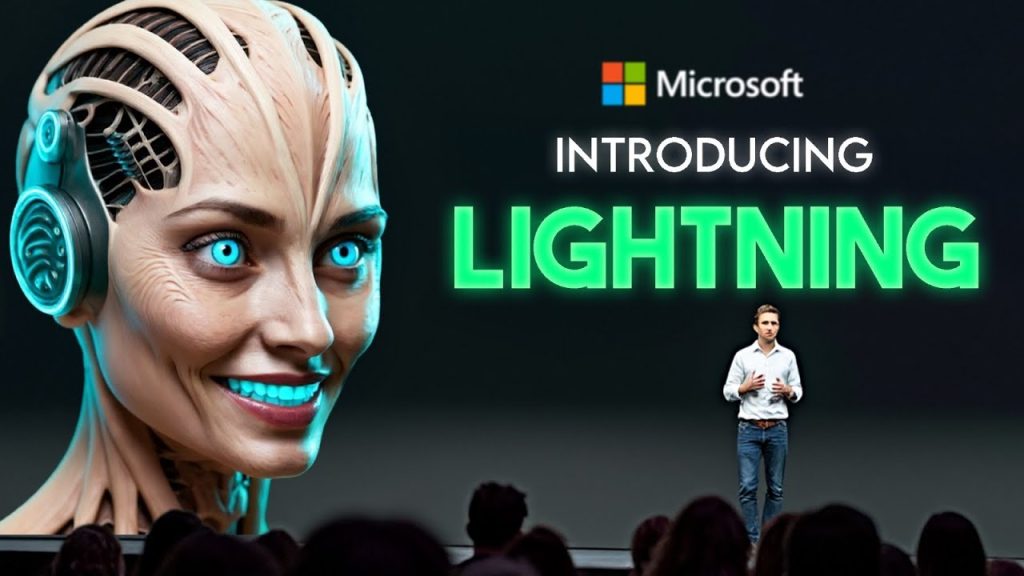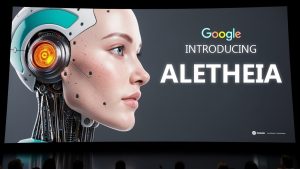Microsoft Unveils First Genuine Self-Improving AI, Defying Traditional AI Limitations

Major AI and Tech Updates: What You Need to Know
This week has witnessed significant advancements in the tech world, particularly in AI. From Microsoft’s new reinforcement learning framework to the emergence of decentralized AI networks, here’s a roundup of all the groundbreaking news.
Microsoft’s Agent Lightning
Microsoft has unveiled Agent Lightning, a groundbreaking reinforcement learning framework that allows AI systems to learn from experience without needing extensive system overhauls. Previously, training an AI required rebuilding substantial portions of the system. With Agent Lightning, the AI continuously observes its own performance—what questions it answers, how it interacts, and what methods yield success or failure.
This approach is akin to giving the AI its own memory, enabling it to improve independently over time. Operating seamlessly in the background, this framework utilizes a lightning server to manage training while a lightning client gathers performance data. As the AI interacts with users, that data is sent back to the server for continuous learning.
Microsoft has applied this technology in various scenarios, such as creating SQL query generators from text, building a system that retrieves and summarizes information from millions of documents, and enabling step-by-step math problem solving. The results? Noticeable improvement in the AI’s capabilities through enhanced training methods.
OpenAI’s Safety Models
While Microsoft focuses on reinforcement learning, OpenAI has taken a critical step toward online safety with the release of two new models designed to detect harmful or misleading content: the GPoS Safeguard 120B and GPOSS Safeguard 20B. Uniquely classified as openweight models, they allow developers to inspect parameters and understand decision-making processes without altering the underlying code.
These models were developed with the Robust Open Online Safety Tools (Roost) initiative and have been tested alongside partners such as Discord. Researchers can begin testing these models on platforms like Hugging Face, marking progress toward accountability and effective AI moderation.
Telegram’s Decentralized AI Network
In Dubai, Pavl Durov, founder of Telegram, introduced Cocoon, a revolutionary decentralized AI network operating on the TON blockchain. Designed to preserve user privacy, Cocoon allows GPU owners to connect with developers needing computational power, facilitating a peer-to-peer marketplace for AI tasks.
What sets Cocoon apart is its focus on encryption. Tasks are executed in a way that keeps user data secure, eliminating risks of exposure. Telegram plans to integrate this technology into its suite of applications starting November 2025. This move could foster rapid adoption of decentralized AI by leveraging Telegram’s vast user base.
Elon Musk’s Growipedia
Elon Musk has announced Growipedia, an AI-driven encyclopedia intended to rival Wikipedia. This model aims to minimize human bias by allowing AI to autonomously curate and update entries. Unlike Wikipedia, which relies on community consensus, Growipedia leans on an algorithmic approach, asserting that this could lead to better accuracy in information presentation.
While some celebrate this as a step toward a bias-free knowledge platform, critics argue that AI lacks the ability to grasp nuanced information as effectively as human editors. Regardless, Growipedia exemplifies the ongoing development of AI’s role in information systems.
Adobe’s Innovative Tools at Adobe Max 2025
At Adobe Max 2025, the company introduced a suite of new creative tools designed to revolutionize digital content creation. Projects like Motion Map allow users to animate static designs with simple text prompts. Project Clean Take offers the ability to edit video audio directly from a transcript, enabling effortless changes in tone or content.
Another highlight, Light Touch, permits post-capture editing of photo lighting conditions, while Frame Forward streamlines video editing by allowing adjustments at a single frame level that automatically apply across the whole video. These innovations indicate a shift toward more intuitive, AI-assisted creative processes.
YouTube’s AI Upscaling Feature
YouTube has begun implementing AI-driven upscaling of videos, elevating low-resolution uploads to HD quality and soon to 4K. This new feature aims to enhance the viewing experience, particularly on larger screens. Additional updates include increased thumbnail sizes and immersive previews for channel navigation, making the platform feel more interactive and engaging.
IBM’s Granite 4.0 Nano Models
IBM has launched its Granite 4.0 Nano models tailored for edge computing. These compact yet powerful AI models can run directly on personal devices without the need for external cloud servers. By combining various AI designs, these models offer significant performance without excessive memory use.
These open-source models stand out for their capability to handle tasks that many larger models struggle with, offering competitive advantages in general reasoning and complex operations.
Nvidia’s Historic Milestone
Finally, Nvidia has made headlines by becoming the first company to surpass a $5 trillion market cap. This newly achieved valuation further cements Nvidia’s dominance in the tech sector, especially as the demand for GPUs continues to surge with the growing reliance on AI technologies. CEO Jensen Huang has announced massive investments aimed at expanding AI infrastructure, demonstrating the robust and evolving relationship between hardware and AI advancements.
Conclusion
The past week has been bustling with innovations across the tech landscape, illustrating how AI and related technologies are setting new trends and redefining existing paradigms. With significant investments, groundbreaking models, and creative tools in development, the future of AI looks more promising than ever. As these advancements continue to roll out, they pose exciting challenges and opportunities for developers and users alike.
Stay tuned for more updates as these stories develop!
#Microsoft #Launched #True #SelfImproving #Broke #Rules
Thanks for reaching. Please let us know your thoughts and ideas in the comment section.
Source link






Like and subscribe this group working hard.
Did you just put Trump in good light as if he is a good guy calling for proper accountability? That is how it came out.
He is one of the most corrupt, evil people on this planet. Watch yourself. If you don't want backlash don't even mention politics, especially on the side of corrupt sacks of shit.
Also, holy shit, Grokipedia is probably gonna be the largest source of misinformation on this planet.
comeback of ai☠☠☠